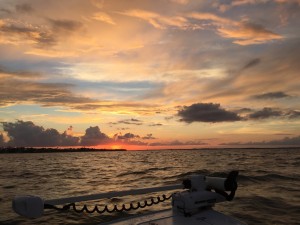10 Surprising Ways You Can Help With Fishing Conservation
By Debbie Hanson
Jun 12, 2015
You may be surprised to learn that even the simple act of purchasing your fishing license helps to contribute towards fishing conservation efforts.
You may be surprised to learn that even the simple act of purchasing your fishing license helps to contribute towards fishing conservation efforts. However, purchasing a fishing license is just the first step. There are several other surprising ways you can help with fishing conservation this month, in honor of National Great Outdoors Month, or anytime.
1. Know the current fishing regulations for your state
When you have knowledge of the fishing regulations, you won't mistakenly keep fish that are over-sized or under-sized, and you'll know what the correct seasons and bag limits are for each species.
2. Know how to identify different fish species and have a measuring device with you so that you can properly measure your catch
Proper species identification is important when it comes to following the fishing regulations for the reasons mentioned in number one above.
3. Use tackle that is heavy enough to quickly land and release the fish without causing it undue stress
Fighting a fish for a long period of time on light tackle can cause the fish to because exhausted and will diminish its chances for survival.
4. Use circle hooks when fishing with natural baits
Because of the way circle hooks are shaped (tip of the hook is pointed inward), they reduce the chances that a fish will swallow the hook and suffer internal injuries.
5. Catch and release fish without removing them from the water whenever possible
Again, this will help avoid additional stress on the fish.
6. Avoid putting fingers or other objects in the gills of the fish
The gills serve as a fish's lungs. If injury is caused to the gills, the fish may not be able to breathe.
7. Handle fish with wet, bare hands if you must handle it
Never use a towel because a towel will remove the fish's protective slime coat. The protective slime coat is one of the fish's main defenses infection and disease.
8. Bring all trash, fishing line and tackle back with you after a fishing trip
This will help to keep fish habitats clean and healthy.
9. Take part in volunteer conservation efforts
There are many local, national and government organizations that coordinate waterway clean up efforts and research projects in order to improve our fish habitats and waterways. Find out more about these volunteer opportunities and get involved.
10. Share these conservation tips with other anglers
Accurate information about conservation will help all anglers makes better decisions about fishing and preserving healthy fish populations. Make an extra effort to create awareness by spreading the word about conservation during National Great Outdoors Month.


Purchase your fishing license today, and then apply this list of suggestions the next time you go fishing. Help us preserve our fish populations now and for future generations of anglers.









